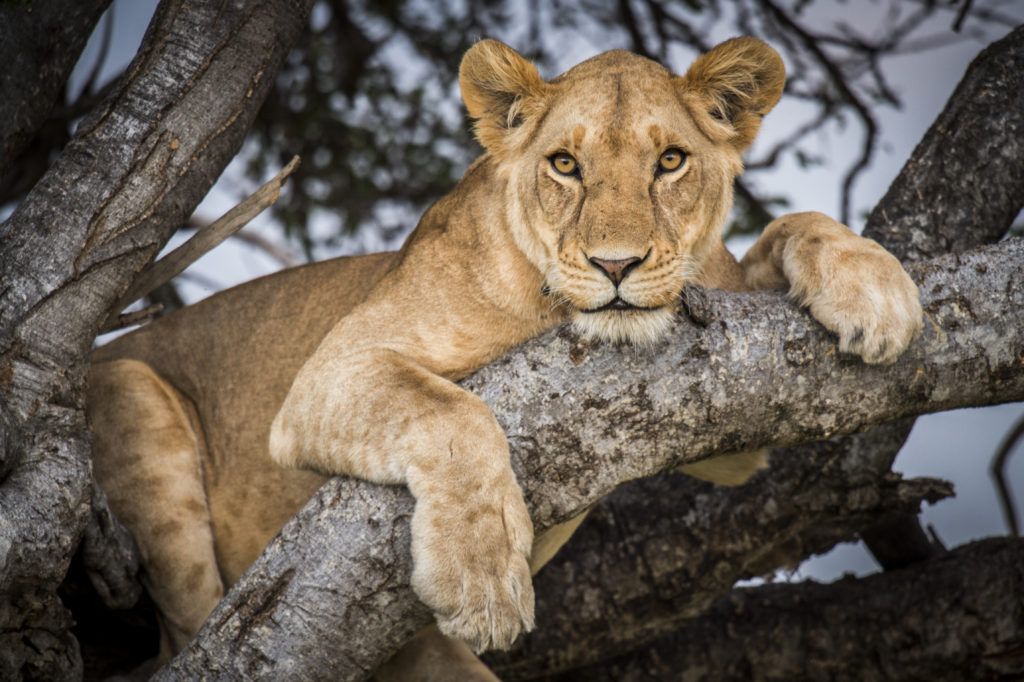It was a long drive from northern Uganda to Queen Elizabeth National Park (QENP). After almost 10 hours cooped up in the truck, Peter Lindsey was eager to arrive. Uganda is known for its deep green forests and wide savannahs—home to elephants, gorillas, and lions—but Peter, director of WCN’s Lion Recovery Fund, had seen nothing of the sort. Instead, he saw extensive deforestation, with nature’s elegant fabric replaced by a patchwork of farmlands and exotic trees. When at last he saw the rich, thriving landscapes of QENP, all he could say was, “Thank goodness for parks. Thank goodness someone had the foresight to protect these places.”
Africa is famous for its storied parks and reserves like QENP. When they are well financed and managed, such parks retain relatively intact habitat and keep wildlife safe from human threats. These sanctuaries are increasingly important for lions, who have lost half of their numbers in just 25 years. Yet most parks in Africa have but a fraction of the funding needed, meaning these protected areas are in fact not protected, and people living around the parks receive no benefits. Therefore, a key strategy of the Lion Recovery Fund (LRF)—a collaborative initiative of WCN and the Leonardo DiCaprio Foundation, launched in 2017—is to strengthen the protection and management of reserves like QENP.
Research shows that with proper management, Africa’s parks could support three to four times more lions than we have today. The LRF therefore invests in protected landscapes and aims to make them places where lions can thrive and coexist with the people living alongside them. Like a venture capital firm, WCN’s Lion Recovery Fund finds and invests in the best ideas, regardless of institution, to recover lions. Projects range from strengthening law enforcement, to incentivizing local communities to live with lions, to producing campaigns aimed at ending the bushmeat trade—which is poaching the prey species that lions eat and killing lions themselves.
The remaining 100 or so lions in Queen Elizabeth National Park are beloved by tourists for their unconventional fondness for tree-climbing and distinctive black manes, but are often reviled by herders. In a terrible chain reaction, herders bring livestock into the park illegally, lions eat the livestock, herders kill the lions. The Wildlife Conservation Society (WCS), now a Lion Recovery Fund grantee, works to mitigate this human-lion conflict—Peter came to the park to learn more about the problem and to see how the LRF could support WCS’s work (the LRF is honored to have approved a grant to WCS to help bring lions back to QENP). Back in the truck, winding through the park, Peter takes in the spectacular view. Every bit of forest and every lion scaling a tree or prowling the savannah represents what the LRF envisions all of Africa’s parks could be; not merely landscapes, but bona fide lionscapes.
Learn more about the Lion Recovery Fund.


